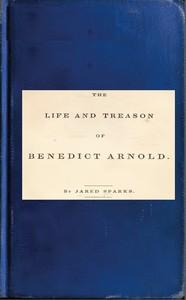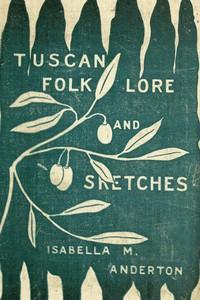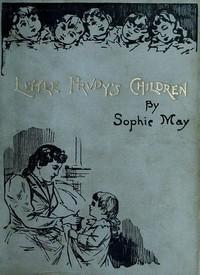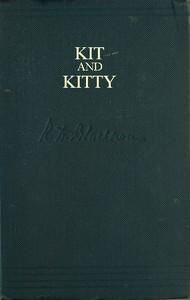Read this ebook for free! No credit card needed, absolutely nothing to pay.
Words: 48336 in 9 pages
This is an ebook sharing website. You can read the uploaded ebooks for free here. No credit cards needed, nothing to pay. If you want to own a digital copy of the ebook, or want to read offline with your favorite ebook-reader, then you can choose to buy and download the ebook.


: Life and Treason of Benedict Arnold by Sparks Jared - Generals United States Biography; United States History Revolution 1775-1783; United States. Continental Army Biography; Arnold Benedict 1741-1801; American loyalists Biography
him under the odium of a public accusation.
The form of the trial, as notified by the Commander-in-chief, was not acceptable to the Council. They were called on as the accusing party to defend their charges before the court-martial.
President Reed wrote a letter to General Washington, in the name of the Council, expressing surprise that such a turn should be given to the affair, and that they should be looked upon in the light of the prosecuting party. He said it had never been their intention to exhibit charges, but only to convey their sense of the conduct of General Arnold, and to state their reasons. It was no part of their purpose to become prosecutors. Duty required them to make known their opinion to General Arnold's superiors and to the public, but farther than this they did not consider themselves bound to go. And, indeed, they conceived it to be inconsistent with the dignity of the executive authority of a state to appear before a military tribunal and prosecute an individual, who was amenable to another power for his conduct. They thought it the business of Congress, or of the Commander-in-chief, to institute a form of trial, which should put the prosecution upon a different footing. That the course of justice might not be obstructed, however, by points of etiquette or punctilious scruples, they professed a willingness to proceed with the trial, according to the mode appointed by the Commander-inchief, requesting only such delay as would enable them to procure the proper testimony.
As soon as the committee of Congress had reported on the charges submitted by the Council of Pennsylvania, General Arnold resigned his command in Philadelphia. This occurred on the 18th of March, 1779. He had obtained permission of the Commander-in-chief to resign in January, but had deferred it, as he said in his letter to Congress, till the charges should be examined by that body, lest his enemies should misrepresent his motives, and ascribe his resignation to the fear of a disgraceful suspension in consequence of those charges. He was the more disappointed and vexed, therefore, that Congress, instead of calling up and sanctioning the report, yielded to the solicitation of his enemies for a military trial.
The day finally agreed upon for the assembling of the court-martial was the 1st of June. Head-quarters were then at Middlebrook. Unfortunately just at that time the enemy in New York gave indications of a sudden movement, either into New Jersey, or up the North River; and a council of war decided, that the exigency of the service required every officer to be at his post, and rendered it necessary to defer the courtmartial, till, in the judgment of the Commander-in-chief, the state of affairs would permit the members to be assembled. This renewed disappointment was severely felt by Arnold, as there was now but a slender hope, that the trial could take place during the campaign; while he in the mean time would be destitute of employment, and his character must suffer from the suspicions excited in the public mind by the charges, which had been promulgated against him. Patience was his only resource; and, while practising this virtue so adverse to his habits, he had ample leisure to brood over his ills, cherish the bitter recollections of the past, and mature schemes for the future, which opened the way and hurried him onward to his ruin.
Whether weary of a military life, or impelled by his pecuniary necessities, or from whatever cause, it appears that Arnold had actually meditated leaving the army before the difficulties with the Pennsylvania government had assumed the shape of a public censure upon his character. He had formed a project of obtaining a grant of land in the western part of New York, and of establishing a settlement for the officers and soldiers, who had served under him, and for such other persons as might choose to unite in the enterprise. The New York delegation in Congress approved his plan, and wrote a joint letter on the subject to Governor Clinton, soliciting his aid and counsel to obtain suitable patronage from the legislature. "To you, Sir," say they in the letter, "or to our State, General Arnold can require no recommendation; a series of distinguished services entitle him to respect and favor." They likewise represented, on general grounds, the policy of strengthening and guarding the frontier, by such a settlement as was contemplated.
Mr. Jay, then President of Congress, enforced the same application in a private letter to Governor Clinton, "How far his plan may coincide with the views of the legislature," he wrote, "I am at a loss to say. I wish, however, that in treating with him they may recollect the services he has rendered to his country, and the value of such a citizen to any state that may gain him. Several other general officers have thoughts of settling in our state, and the prevailing reason they assign for it is the preference of our constitution to that of other states. They consider it as having the principles of stability and vigor, as well as of liberty; advantages which the loose and less guarded kinds of government cannot promise. It certainly is our interest to encourage these predilections, by attention to those who hold them; and I have no doubt but that generosity to Arnold will be justice to the State." These testimonies show, that there was a division of opinion in Congress, and that Arnold numbered among his friends some of the ablest and best members. The spirit of party never raged with more violence within the walls of the old Congress, than at this period. Arnold's case was doubtless made worse, and his feelings irritated, by this circumstance.
He visited General Washington's camp in February, and it is supposed he extended his journey to the State of New York, and consulted Governor Clinton; but we hear no more of his project. It was absorbed at the time in the more engrossing concerns of his trial, and there was no subsequent opportunity for reviving it.
After resigning his command at Philadelphia, he continued to reside in that city, holding his commission in the army, but filling no public office. Either by the unpopularity of his character, or by his disagreeable manners, he rendered himself odious to the inhabitants, and one day when abroad he was assaulted by the populace. He immediately complained to Congress. "A mob of lawless ruffians," said he, "have attacked me in the street; and they threaten my life, now I am in my house, for defending myself when attacked. As there is no protection to be expected from the authority of the State for an honest man, I am under the necessity of requesting Congress to order me a guard of Continental troops. This request I presume will not be denied to a man, who has so often fought and bled in the defence of the liberties of his country." He asked for a guard of twenty men. Congress declined interfering, and referred him to the executive authority of Pennsylvania, not without a hint of displeasure at the insinuation in his note against the government of that State.
In reply he modified his meaning, and said he did not doubt the disposition of the executive of Pennsylvania to protect honest citizens, but he had no confidence in their ability to do it; since several persons had already been killed and wounded in an affray, notwithstanding the attempts of the civil authority to quell the disturbance. He renewed his request for a guard, and declared his belief, that his life was in danger from a mad, ignorant, and deluded rabble, whose rage and infatuation would drive them to any extreme of violence. As usual, he reminded Congress of his rank and services, and claimed to be protected by the troops, whom it had formerly been his happiness to command. This second application was unavailing, and he was left to such protection as he could obtain from the civil power of Pennsylvania.
The summer and autumn passed away, and his trial was still in suspense. At length, when the campaign was closed, and the army had retired into winter-quarters, General Washington gave notice to the parties concerned, that a court-martial would be assembled on the 20th of December in the vicinity of Morristown. The trial was commenced at that place accordingly, and it continued, with some short intermissions, till the 26th of January, 1780, when the court pronounced their verdict.
Several witnesses and much written testimony were patiently examined. Considering the grave purport of the charges, it must be allowed that the proofs, as they appear in the published proceedings, are not so clear and strong as might have been expected. Arnold's defence was studied, elaborate, and characteristic. He took up, one by one, the eight charges of the Council of Pennsylvania, although four of them only had been referred to the court, and attempted to refute them in detail. On some points he was successful, but, unfortunately for his cause, he weakened the force of his arguments and diminished the value of his facts, by making a parade of his patriotism, services, sacrifices, and wounds, and by enumerating his wrongs imaginary and real. He introduced letters from General Washington and resolves of Congress to show, that his conduct in the war had not only been approved but applauded, and thus aimed to draw the attention of the court aside from the true merits of the case by a series of particulars, which had no connexion with it.
Free books android app tbrJar TBR JAR Read Free books online gutenberg
More posts by @FreeBooks

: Rameaun veljenpoika: Filosofinen vuorokeskustelu by Diderot Denis Hagfors Edvin Translator - Dialogues French Translations into Finnish


: Tuscan folk-lore and sketches together with some other papers by Anderton Isabella Mary Anderton Basil Editor Anderton H Orsmond Editor - Folklore Italy; Italian literature Translations into English






